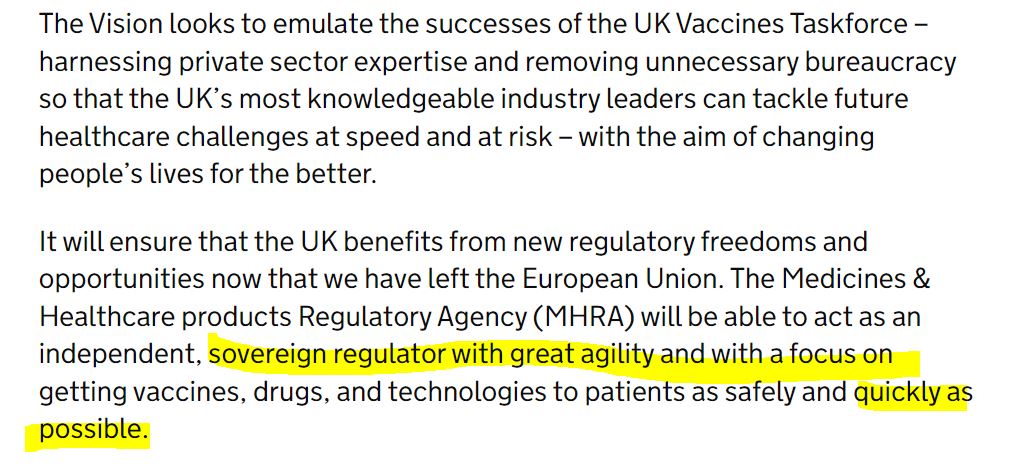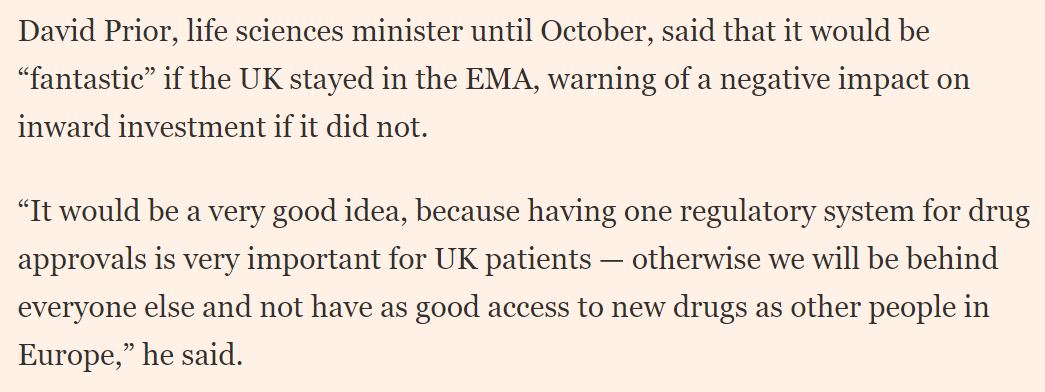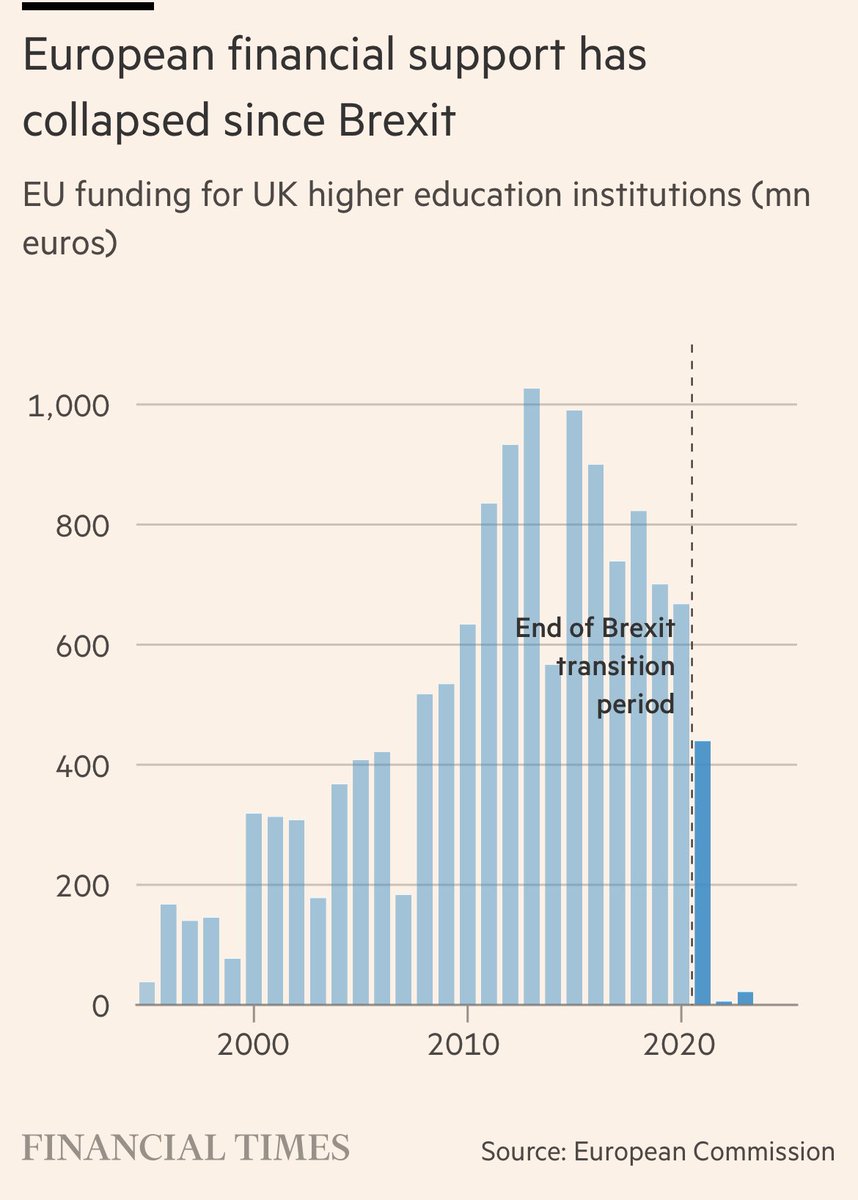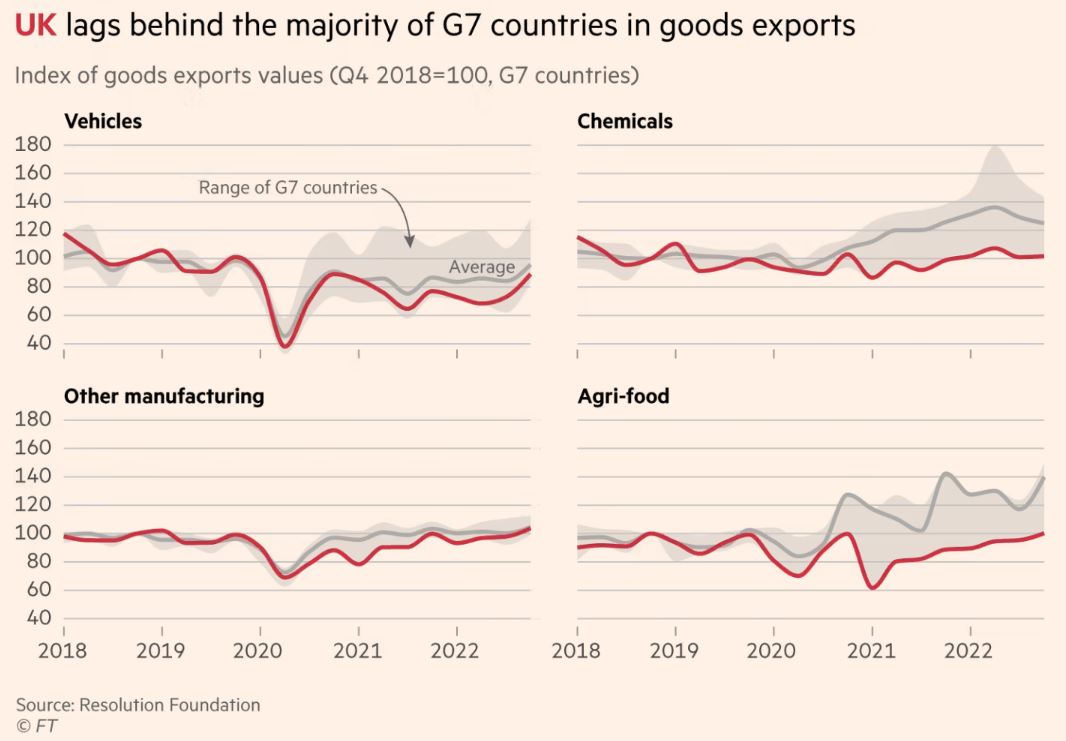🚨🚨🇬🇧🇪🇺💊💉💊💉🇬🇧🇪🇺🚨🚨UK lags EU in authorising new medicines after #Brexit - my latest via @FT @hannahkuchler
A take of Brexit reality, though not in truth that unsurprising. Quick thread…/1 on.ft.com/3Okoctj
A take of Brexit reality, though not in truth that unsurprising. Quick thread…/1 on.ft.com/3Okoctj
@FT @hannahkuchler First the analysis by @jgbarlow2010 prof at @ImperialBiz et al.
Their audit of "novel" drugs authorisatiions in 2021 found that only 35 so-called novel medicines were approved for use in the UK... 2021
...compared with 40 in the EU
....and 52 in the US. /2
Their audit of "novel" drugs authorisatiions in 2021 found that only 35 so-called novel medicines were approved for use in the UK... 2021
...compared with 40 in the EU
....and 52 in the US. /2
@FT @hannahkuchler @jgbarlow2010 @ImperialBiz This isn't that surprising, as I say, since ther UK is only 2.4% of global health spend versus 22% in the EU.
So market size makes the paperwork less worthwhile. Also the NHS is a nighmare and NICE, the rationing/approvals body, doesn't fund some new meds /3
So market size makes the paperwork less worthwhile. Also the NHS is a nighmare and NICE, the rationing/approvals body, doesn't fund some new meds /3
@FT @hannahkuchler @jgbarlow2010 @ImperialBiz So. As James Barlow @jgbarlow2010
observes separate UK bureaucracy + smaller raises long term Q:
"The real question is how things will look in five or 10 years’ time. Will we see a cumulative build up of drugs that haven’t been licensed in the UK, but have elsewhere?” /4
observes separate UK bureaucracy + smaller raises long term Q:
"The real question is how things will look in five or 10 years’ time. Will we see a cumulative build up of drugs that haven’t been licensed in the UK, but have elsewhere?” /4
@FT @hannahkuchler @jgbarlow2010 @ImperialBiz None of this means the regulator @MHRAgovuk is not good...it just has limited capacity and the UK is just has relatively less heft/pull as a go-it-alone entity/5
ft.com/content/7227a6…
ft.com/content/7227a6…
@FT @hannahkuchler @jgbarlow2010 @ImperialBiz @MHRAgovuk Of course, also worth pointing out -- as the Tory's hold their #ToryLeadershipContest -- that is falls short of what was promised...for the "sovereign regulator" last year when UK govt launched its post-#Brexit life sciences plan last year. /6
gov.uk/government/new…
gov.uk/government/new…

@FT @hannahkuchler @jgbarlow2010 @ImperialBiz @MHRAgovuk Also that, back in another world in 2017-18, the UK Tory govt was very keen to remain part of the European Medicines Agency..."otherwise we will be behind everyone else and not have as good access to new drugs as other people in Europe" /7
ft.com/content/1bd3b3…
ft.com/content/1bd3b3…

@FT @hannahkuchler @jgbarlow2010 @ImperialBiz @MHRAgovuk And so, it seems, it has come to pass. Or is coming to pass.
Steve Bates, ceo of the UK’s BioIndustry Association, @BIA_UK said the Imperial paper was a “wake-up call” for the UK to look at incentives to bring a novel drug to the country.
It's early days. We'll see. ENDS
Steve Bates, ceo of the UK’s BioIndustry Association, @BIA_UK said the Imperial paper was a “wake-up call” for the UK to look at incentives to bring a novel drug to the country.
It's early days. We'll see. ENDS
• • •
Missing some Tweet in this thread? You can try to
force a refresh















